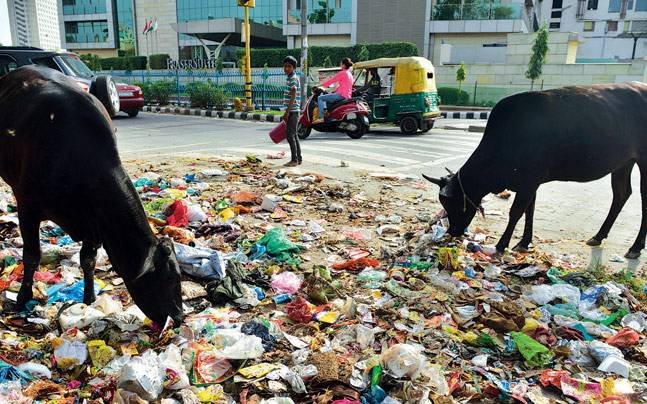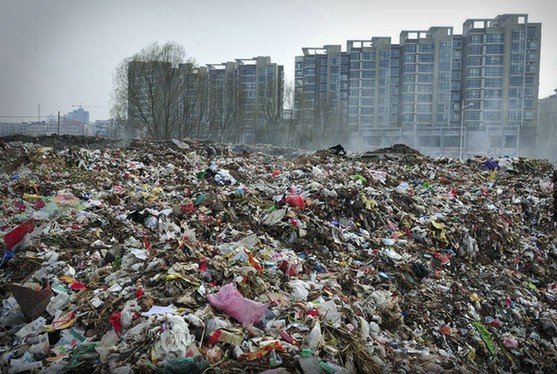Waste accumulation situation in two countries
- The Acara Challenge, New Delhi, India :
I have never been to India, but I used to study the situation over there. I wish I could see it with my own eyes.
The Situation in India :
Waste in India is an unavoidable problem. Currently, total waste accumulation per day in India reaches amounts over 136 000 tons per day. The quantity of waste is not the only issue, since most waste is not separated at the point of accumulation in the home, the waste cannot be reused. But even if the waste is properly separated or accumulated where it is generated, the public services in place lack substantial funding and are ineffective.
( )
)
Everyday struggle :
In India, people struggle on a daily basis to survive. This everyday struggle include acquiring food and the necessary fuel to cook with. Azadpur Mandi, in New Delhi, is the largest wholesale produce market in Asia. The market is a national distribution center for farmers who bring their produce to sell. Unfortunately, much of the produce that arrives at the market cannot be sold because it was damaged in transit. The waste that is being generated by Azadpur Mandi is going to a landfill where it decomposes and emits methane into the atmosphere. Methane is one of the most potent greenhouse gases and a major contributor to global climate change.
A Solution : ROT2ROTI : the energy production business :
ROT2ROTI is a renewable energy production business that will convert the waste generated from the Azadpur Mandi into fuel for the Shalimar Slum and other communities. Through this service, Indian people will have cheaper access to fuel and, furthermore, ROT2ROTI will employ Shalimar Slum residents. Meanwhile, it will reduce the environmental problems.
- The situation in China :
When I went to China, I saw the effect of pollution. Disease, smog...
 )
)
Scavenging, China Development of global supply chains :
Scavengers and waste pickers have existed for centuries, but over the past two decades, globalization has encouraged the development of global supply chains that link scavengers in many developing countries with industrial activities in China.
The Benefits of scavenging :
Scavenging provide economic and environmental benefits, such as providing an income to unemployed individuals, supplies inexpensive raw materials to industry, reduce need for collection, transport and disposal equipment and facilities. Also, recycling has a lower environmental impact compared to the use of virgin resources, and extends the life of disposal facilites, which saves municipalities’ money. Various studies have noticed the economic importance of scavenging activities.
Experiences and issues :
A growing number of experiences in Africa, Asia and Latin America demonstrate that by getting organized, waste pickers become empowered. By working together, they can gain higher incomes and legalization of their activities. Scavengers can also create their own micro-entreprise to recycle and use waste as raw materials.
Unfortunately there are some issues : scavengers face multiple problems. Due to their daily contact with garbage, they are associated with dirt and perceived as a nuisance. They also face serious risks to their health. Scavengers need to be organized and have public policy which supports them.
In conclusion, zero waste is not an easy thing to reach. Indeed, zero waste is a goal, a process, a long way to realize. We have to keep this aim in mind and try to do it better every day. Naturally, it won’t be easy but the little change and effort can make the difference. Zero waste can simply be maximizing recycling, repaired things and not throw it, minimizing waste, reducing needless consumption. It’s a common work and every body can solve the issue, in its own way.
Never really thought about waste problems in these countries specifically, so definitely an interesting read and eye-opener for me.
Great that there are solutions like "ROT2ROTI" but I think the waste problem will only grow bigger but yes maybe if we all help a hand we can make a difference! 💪
I agree, thanks (heart heart heart)
Hi! I am a robot. I just upvoted you! I found similar content that readers might be interested in:
https://www.wider.unu.edu/publication/global-recycling-supply-chains-and-waste-picking-developing-countries